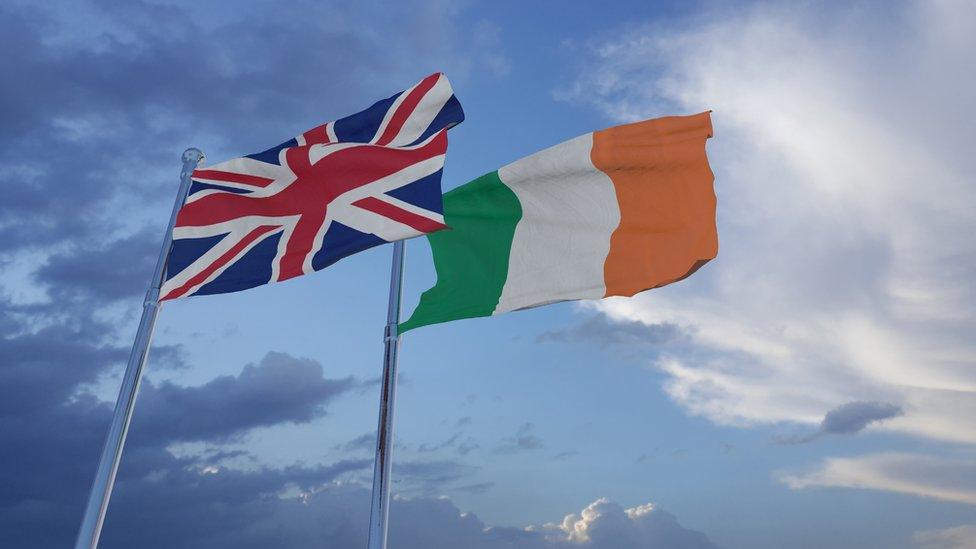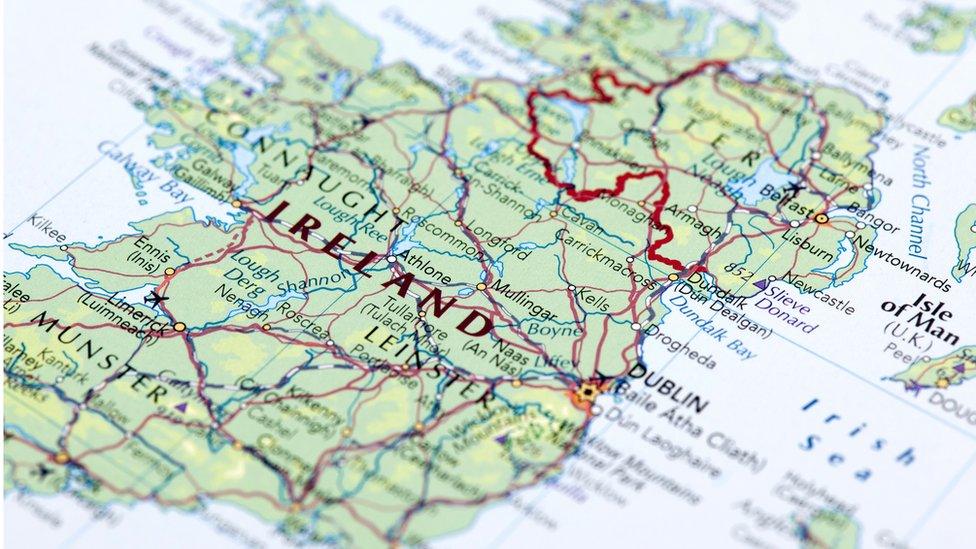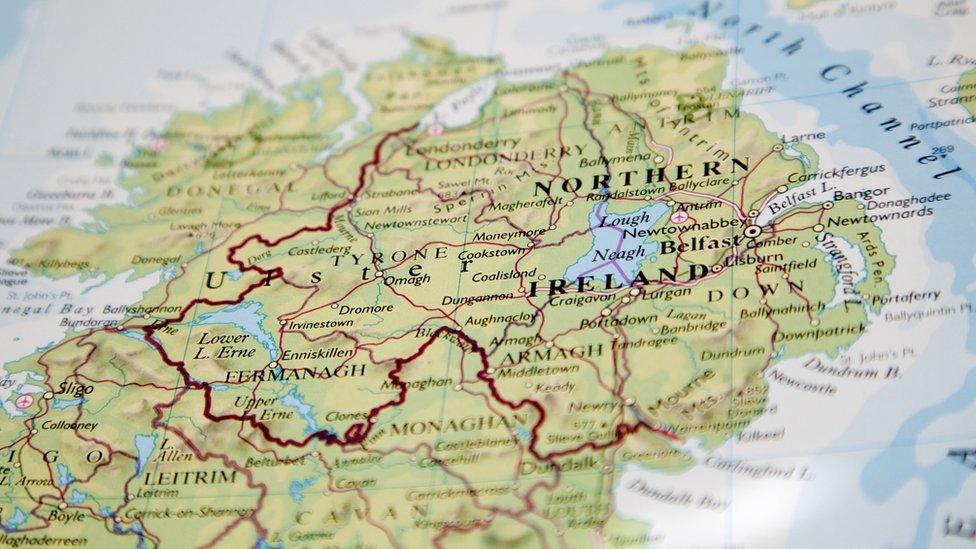United Ireland would cost €8bn to €20bn a year, study suggests
- Published

The report focused on the shortfall between what is raised in taxes in Northern Ireland and the amount spent on public services
The initial cost of a united Ireland would be at least €8bn (£6.86bn) a year rising to potentially €20bn (£17.15bn) a year, a new study has estimated.
Published by the Institute of International and European Affairs (IIEA) it focuses on subvention.
That is the shortfall between what is raised in taxes in Northern Ireland and the amount spent on public services.
A Sinn Féin TD (MP) has described the €20bn figure as a "worst-case scenario".
However, one author of the study said absorbing NI could put "huge financial pressure" on people in the Irish Republic.
Prof John Fitzgerald said that would result in "an immediate, major reduction in their living standards".

Prof John Fitzgerald said unification would result in "huge financial pressure"
Along with his co-author, Prof Edgar Morgenroth, he argued that the cost of unification could be substantially reduced if Northern Ireland made major changes in its economy in order to raise its productivity.
Prof Morgenroth said some of the costs would also eventually be offset by the benefits of integration into the wider EU economy but this would take "some considerable time".
"People bought into the idea of Brexit without knowing what the exact implications were going to be...without knowing exactly what a united Ireland would look like its very difficult to do very precise calculations.
"I think we need to do some planning to understand what the implications might be."
Are the public willing to pay for unification?
Asked if Ireland could afford the extra cost, Prof Morgenroth said this was a "political question" which people on both sides of the border must answer.
"I previously worked on German unification and there the costs are still mounting, and this is decades later, we are now into the trillions of euros," he said.
"But when you ask people, three-quarters say they are happy with German unification, so they are willing to pay this.
"That is the more important question."
Donegal Sinn Féin TD Pádraig Mac Lochlainn told Irish broadcaster RTÉ he disputed the report's methodology, and said the actual cost would be less as it assumes there would be no economic growth in Northern Ireland.
Speaking to RTÉ's Today with Claire Byrne programme, Mr Mac Lochlainn argued there was "a real opportunity for economic growth" due to Northern Ireland's open border with the Republic and dual-market access.
He added there has been a substantial growth in the all-Island economy since Brexit.
Different scenarios
The Dublin-based pro-EU think tank's study looks at how the subventions would be affected under different scenarios.
The authors look at the subvention for 2019 as the more recent data, for 2020 and 2021, is distorted by pandemic-related spending in Northern Ireland.
They adjust the 2019 figures to reflect some of the differences a united Ireland would make, for example less spending on defence, more on contributions to the EU and increased corporation tax revenues.
That produces a subvention estimate of just under €11bn (£9.4bn) meaning the Irish state would need to find that money to provide public services to the state's new population in what had been Northern Ireland.

Prof Morgenroth said some of the costs would eventually be offset by the benefits of EU membership
The authors estimate that if social security benefits and public sector wages in Northern Ireland were immediately raised to match levels in Ireland the subvention would jump to more than €20bn, equivalent to 10% of national income.
The authors said this is "a huge sum" as total government expenditure in Ireland currently amounts to about 40% of national income.
"To deal with the resulting deficit, which under the most favourable circumstances would persist for many years after unification, there would have to be a dramatic increase in taxation and/or a major reduction in expenditure," they add.
The authors consider two additional scenarios which assume that the UK would either write off Northern Ireland's share of the UK's national debt or continue to pay UK state pensions to people who had made national insurance contributions.
In those scenarios, the initial cost falls to between €8bn-9bn per year, although those estimates do not include the uprating of benefits and pay.
None of the estimates consider the potential savings from reducing public sector employment in NI or the longer term impacts if Northern Ireland's economic performance was to converge on Ireland's.

A previous study from 2021 suggested the cost of a united Ireland could be about €3bn
A 2021 paper by the political scientist Prof John Doyle, external suggested that the subvention is much smaller and would represent a deficit of less than €3bn (£2.57bn) for a unified state.
He said that was "within a range that a future state could cope with on a transitional basis".
One of his major assumptions was that it would be "impossible that the level of subvention impacting a united Ireland would include both pensions and debt".
He has recently added to that analysis, emphasising the potentially positive longer run economic impacts of unification.
He concluded, external: "It is hard to think of compelling arguments as to why the same policy mix in the two parts of the island, post-unity, would see Northern Ireland's economy continue to perform poorly by comparison with the south."
Related topics
- Published21 April 2022

- Published7 November 2023

- Published20 April 2021
